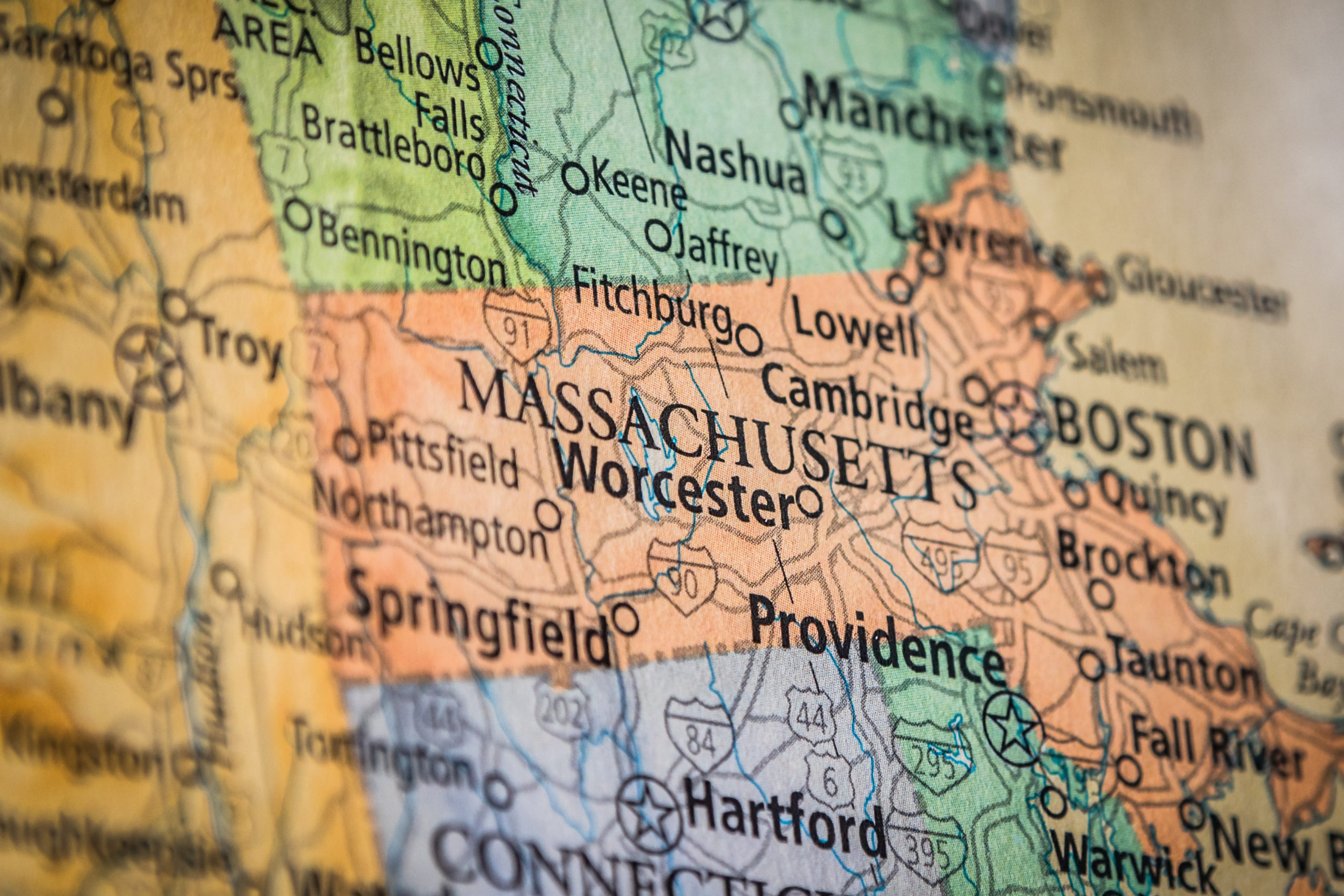Connect with us
Published
2 years agoon

Egremont, Massachusetts is welcoming its first and only cannabis store, Divine Berkshires, which is also the first Black-owned cannabis shop in the Berkshires and a testament to the DIY drive it often takes to navigate the emerging cannabis industry.
The Berkshire Eagle reports on the store’s opening, with Owners Heidi and Ari Zorn stepping in, nearly alone, navigating the regulatory maze required to open a cannabis shop. Ari nods to his wife Heidi, saying it was “All Heidi,” citing the carpentry, carving and painting, alongside her efforts in conquering the hurdles that are often stacked against mom-and-pop-style ownership.
They also cited their supportive community, backing them and showing the couple with love and support, according to Ari. They crowdfunded nearly $100,000 and boast almost 100 investors behind Divine Berkshires. The store is set to open in March, with their son, Isaiah, as their first employee.
It’s been a family endeavor from the beginning, as the couple worked to open the store over three years, with the help of Heidi’s sister and attorney Christina Schenk-Hargrove, to make their way to February 10, when they finally received their license to open.
“I didn’t have to pay $60,000 for a consultant; I could just have a conversation with five different people,” Heidi said.
Ari also noted he’s the first Black person in Berkshire County to receive a cannabis license and the fourth to do so in Massachusetts. He recognizes the beauty in this, but he also said the bureaucratic structure to categorize “minorities” during licensing is offensive to him. Ari said that he sees a lot of unfairness in the system that keeps people of color out of the cannabis industry, but he’d rather focus on the positives of their story, the testament to family and hard work that got them to where they are.
“Everything’s been about ‘Black,’ and I get why, but … she did this,” he said. “And credit to her and her sister for how brilliantly they ripped through that [Cannabis Control Commission] application, and how much money we have spent to date to what [the industry is] telling people what it takes.”
Heidi said that many people in the industry, with more resources and money, have a hard time grasping that, while they might have hired multiple people to take on what she did, she really did the whole thing. “Actually, I can’t really grasp the whole thing either.”
The couple referenced the intricacies of the licensing road, and the attempts to define which “minorities” are eligible for programs and fast-tracks, which Ari doesn’t believe is actually helping the people who need it. Instead, he said it’s all superficial politics. The couple also reference some of the double standards, like how easy alcohol is easy to buy and those same regulations for cannabis businesses that don’t apply to alcohol stores.
“Sometimes it feels over-the-top ridiculous,” Heidi said. “You have to have 14 blocks to get to the weed that’s in the back room. It’s like something more than gold.”
Massachusetts voters voted to legalize cannabis for recreational use in November 2016, and it’s been a booming industry since. Marijuana Moment reported in January that the state is officially collecting more tax revenue for cannabis than alcohol, according to state data: As of December 2021, the state took in $51.3 million from alcohol taxes and $74.2 million from cannabis at the halfway point of the fiscal year.
Since the market came online in November 2018, the state took in $2.54 billion in adult-use cannabis purchases. With the news of cannabis overtaking alcohol in terms of tax revenue, which WCVB first reported, many are pointing to not only the desire for folks in the state (and beyond) to use cannabis, but that it indicates more people are looking to use cannabis as an alternative to alcohol.
Vivien Azer, a senior Wall Street research analyst and managing director at Cowen who covers the emerging cannabis sector, touched on this point:
“Not only is the industry growing by migrating current consumers out of the illicit market into the legal market. But you’re also engaging consumers that have probably tried the product once in their lifetime, but then moved away from the category, but now have permission to reengage with the category now that it’s legal,” she said.


Cresco Labs Workers Reportedly De-Unionize


Arizona Church Reaches Settlement with DEA To Allow Sacramental Use of Ayahuasca


Gov. Kathy Hochul Honors New York’s 100th Adult-Use Retail Store Opening


D.A.R.E. Officer of the Year Discusses Relative Using Medical Cannabis for Cancer


Sweden Authorities Seize 1.4 Tons of Cocaine, ‘One of the Biggest’ Seizures Ever


Uber Eats Shares ‘Dopest’ Cities With Most MJ Deliveries in British Columbia, Ontario
